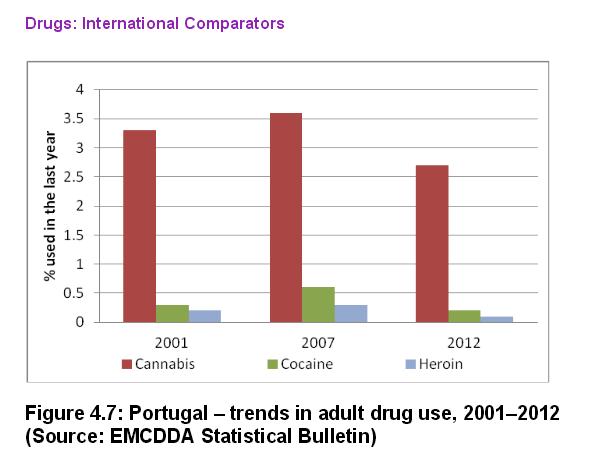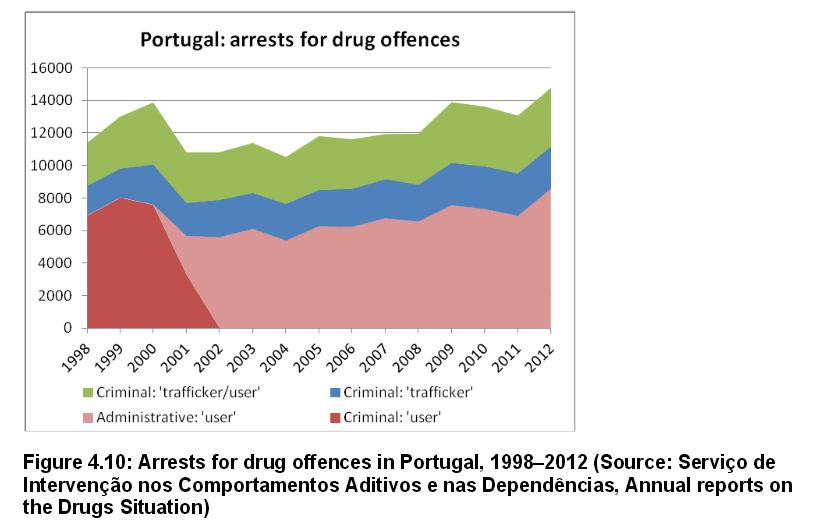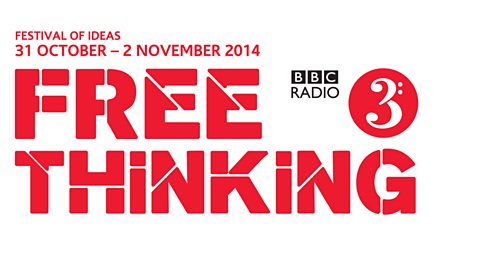A tabloidesque heading for this post for sure, and yet based upon the facts, as reported by the Home Office, that drug use is most prevalent amongst mixed-race people and gays.


Not something the BBC will ever be splashing across its front page or headlining in the news bulletins.
However the BBC is happy to put this dodgy headline up in lights, and to use it repeatedly in those news bulletins….
There is “no obvious” link between tough laws and levels of illegal drug use, a government report has found.
Liberal Democrat Home Office minister Norman Baker said the report, comparing the UK with other countries, should end “mindless rhetoric” on drugs policy.
He accused the Conservatives of “suppressing” the findings for months.
Prime Minister David Cameron said the research did not offer “specific conclusions” and said he did not “believe in” decriminalising drugs.
LibDem Norman Baker has been given a great deal of space to slam the Tories and to push his own pet project…the decriminalisation of drug possession.
The problem is that he bases his claims on the findings, as he tells us, of a report commissioned by the LibDems:
Drugs: International Comparators October 2014
And that report really based its findings on the actions of only one country…Portugal:
Much of the most relevant data in this area comes from Portugal
Not sure why the LibDems commissioned such a report when in 2012 another report looked into the same subject over six years and concluded:
Possessing small amount of drugs ‘should not be crime’
The penalties for drug misuse should be relaxed so that possession of small amounts would no longer be a criminal offence, the government has been urged.
The recommendation comes in a report from the UK Drug Policy Commission, which undertook six years of research.
However, it does not call for the decriminalisation or legalisation of most drugs.
“We do not believe that there is sufficient evidence at the moment to support the case for removing criminal penalties for the major production or supply offences of most drugs,” it said.
So after six years of research it didn’t recommend decriminalisation of all drugs….perhaps that’s why the LibDems commissioned yet another report in the hope that it would fit in with their own policies.
Luckily it did. Or did it?
The BBC headlines certainly say it did…and the report did indeed say ‘We did not in our fact-finding observe any obvious relationship between the toughness of a country’s enforcement against drug possession, and levels of drug use in that country.’
However they did find countries like Sweden and Japan had strict drug laws and low incidence of drug use…but dismissed this as most likely a cultural antipathy towards drug taking rather than effective judicial policies.
That quote is used to suggest that tough penalties for those in possession of drugs do not lead to reduced drug use and ipso facto we do not therefore need tough penalties, and, they may in fact be counter productive….but that headline could equally be ‘No link between weak drug laws and drug use’
However the whole report cannot provide any conclusive proof that decriminalistion itself lowers drug use.
It in fact admits….
It is not clear that decriminalisation has an impact on levels of drug use.
The only demonstrable benefit comes from the lowered costs in the justice system with fewer people going through the courts and having to go to prison. The police still deal with the drug users, having to direct them to treatment centres and courses instead of charging them, and so police time and costs are not reduced.
In fact far from showing a reduction in drug use decriminalisation showed an increased in drug use….The Czech Republic saw a rise….as did Portugal, though Portugal’s drug use has now leveled off……
The Czech Republic and Portugal have similar approaches to possession, where possession of small amounts of any drug does not lead to criminal proceedings, but while levels of drug use in Portugal appear to be relatively low, reported levels of cannabis use in the Czech Republic are among the highest in Europe. Indicators of levels of drug use in Sweden, which has one of the toughest approaches we saw, point to relatively low levels of use
Portugal decriminalised drug possession in 2001 and saw an increase in drug use for the next six years until 2007 after which usage dropped away and leveled off.

Curiously whilst the chart show a decrease in use another one shows an increase in arrests to a level above that pre-2001:

It is not clear at all that Portugal’s decriminalisation has caused a reduction in drug use….any other benefits such as health come as result of treatment and harm reduction programmes.
There are many variables. You have to ask how many drug users there are in a country, then how many are actually arrested, how many are charged, how many are merely cautioned or sent to treatment. Different countries will use different measures to deal with drug users even when they haven’t decriminalised drug possession and therefore comparison and drawing meaningful conclusions must be almost impossible…..
It would be inappropriate to compare the success of drug policies in different countries based solely on trends which are subject to differences in data collection, and are affected by various cultural, social and political factors besides legislation, policing and sentencing.
It is not clear that decriminalisation has an impact on levels of drug use. Following decriminalisation in Portugal there has not been a lasting increase in adult drug use. Looking across different countries, there is no apparent correlation between the ‘toughness’ of a country’s approach and the prevalence of adult drug use.
The report says:
As in Portugal, prevention and treatment are a key element of responses to drugs in the UK.
Which is probably why drug use is dropping in the UK and why Norman Baker is wrong. There is no evidence that decriminalisation reduces drug use, the opposite seems to be true in fact, it is treatment and harm reduction programmes that are the real policies that benefit drug users the most, keeping them healthy and helping them come off drugs.
Sweden and Japan have tough drug laws and have low drug use, possibly as much to do with cultural disapproval than anything else, the Czech Republic introduced similar laws to Portugal and yet saw a steep rise in drug use…as indeed did Portugal.
Portugal only saw a fall in drug use six years after the introduction of decriminalisation after which drug use actually rose for that six years but there is no proven link between decriminalisation and that belated subsequent fall in drug use.
All in all the report comes to no conclusions at all concerning the decriminalisation of drugs and the use of drugs. It did make that statement that ‘Looking across different countries, there is no apparent correlation between the ‘toughness’ of a country’s approach and the prevalence of adult drug use’, however to me that seems as if it was as much wishful thinking as based upon the substance of the report….inserted because that is what someone wanted the report to conclude.
Norman Baker, when making his attacks on the Tories, seems to forget that he signed the forward to the report which states that:
The Coalition Government is delivering on the commitments in our 2010 Drugs Strategy, and there are positive signs that our approach is working.
Where there are differences in practice between one country and another, these are often informed by different social and legal contexts. What works in one country may not be appropriate in another. We explore these differences in this report. In many cases, they illustrate the complexity of the challenge, and demonstrate why we cannot simply adopt another country’s approach wholesale. The UK continues to pursue a balanced, evidence-based approach to the misuse of drugs. We promote this approach internationally, and we seek to engage and learn from other countries as the challenges evolve.
Our legislative approach to drugs misuse, based in the Misuse of Drugs Act, provides us with the flexibility to control emerging harmful drugs and target illicit supply. Police and the courts have discretion to take an informed and proportionate approach to an individual caught in possession of controlled drugs.
Based on what we have learned, the UK will continue to advocate a balanced, evidence-based approach to the misuse of drugs internationally.
The BBC seems to have forgotten that aspect of this business and have given Baker free rein to trash the Tories when the BBC should asking him tough questions about his blatant hypocrisy and two-faced treachery saying one thing in private and something different in public…there must be an election coming.
It’s not as if the BBC don’t know the significance of that signature….
Lib Dem Home Office minister Norman Baker, who signed the foreword of the report along with Home Secretary Theresa May…
However they delve no further and don’t raise any awkward questions for Baker.
Regardless of whether possession should be decriminalised the BBC has taken the most eye catching sentence out of the report, one that in fact bares little relation to the rest of the report, and presented it as if it was the unassailable truth….a supposed conclusion that is at odds with the Tories’ drug policy…and indeed Norman Baker’s if we can believe what he signed up to in the foreword.
Certainly that was the impression I got as I listened on the radio…tough laws don’t reduce drug use but decriminalisation does.
The BBC tells us that :
Mr Baker’s claims have been fuelled by his department’s own report, which finds no link between how tough a country is on drugs and how many people use them.
But the report does not say that at all. It certainly tries hard to make that conclusion but admits it cannot in all honesty do so….as the BBC paradoxially also reports:
The report said it would be “inappropriate” to compare the success of drug policies in different countries because data collection and many other factors differ between each one.
But it said “some observations can be made” and it was “not clear” decriminalisation has an impact on levels of drug use.
So to be clear….there is no link between tough laws and a reduction in drug use…and it was also not clear that decriminalisation reduced drug use….but the BBC chose the most dramatic headline, and at least in its bulletins, were happy to imply decriminalisation would reduce drug use.
Once again the BBC reduces a complex subject down to soundbites in its news bulletins which just happen to favour a line that many at the BBC themselves might look kindly upon….an added bonus is that it is a policy disliked by the Tories.







